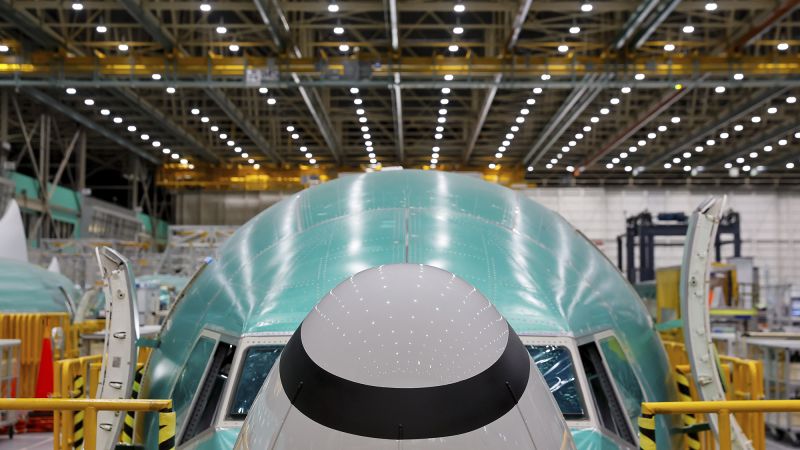New York
CNN
—
Boeing’s finances are a multi-billion-dollar problem for the company, its employees, suppliers and airline customers. The good news is that they probably won’t affect the average American – well, not very much.
After 33,000 members of the International Association of Machinists went on strike against the company a month ago, Boeing won’t be able to deliver all of its planes as promised. That will hurt airlines and could have a modest impact on the number of seats available, especially on domestic flights around the United States.
Fewer seats could mean airlines will be forced to raise fares. But, currently, fares are falling because there is more capacity in the industry than there is demand to fly. Many of the planes not being delivered were likely due to replace older, less efficient planes.
So the strike won’t limit your ability to fly. The planes owned by airlines are already sold. Just like when the automakers were on strike last year, no one took your Chevy away from you, Boeing planes that are currently in service will remain in service.
But Boeing’s financial problems, which started long before the strike could hurt the broader US economy.
Boeing has been hemorrhaging money for more than five years, ever since two fatal crashes of the 737 Max in late 2018 and early 2019 killed 346 people and led to a 20-month grounding of the company’s best-selling plane.
Since that time, Boeing has reported more than $33 billion in core operating losses, and there is no end in sight to the red ink. The strike that started September 13 is adding $1 billion in losses every month to the company’s bottom line, according to credit rating agency Standard & Poor’s. The problem is the halt of production of the 737 Max has cut off the most important source of funds for the company that gets most of its cash from aircraft sales at the time planes are delivered.
Boeing is looking to raise up to $25 billion to help it weather the current storm through additional borrowing along with the sale of stock and debt. It is also planning to cut 10% of staff worldwide, or about 17,000 of 171,000 employees, in a cost-cutting move. Those employees will be hurt by the layoffs, as will the 33,000 strikers who will be getting a fraction of their normal salary in the form of strike benefits from the union.
Boeing’s financial problems are bad news for the US economy. It is the nation’s largest exporter. And more immediately, business in communities where laid-off Boeing employees and strikers live, mostly in Washington state, could see problems as those people pull back on spending. But the other way that the financial problems would spread beyond Boeing will be the impact of the strike on suppliers. Boeing has 10,000 suppliers, which can be found in all 50 US states. It estimates its own annual contribution to America’s economy at $79 billion, supporting 1.6 million jobs directly and indirectly.
According to analysis by Anderson Economic Group, losses by Boeing employees, strikers, suppliers and the company itself, along with local governments, have already reached $5 billion in the first month of the strike.
Boeing’s credit rating is at risk of being downgraded to junk bond status, which would create more financial problems by raising its cost of borrowing. Junk bond status means there’s an increased risk of default and perhaps bankruptcy. But even if it is forced to file for bankruptcy, that doesn’t mean it will go out of business. It just means Boeing would use the bankruptcy process to shed some of its unaffordable debt and other obligations. Numerous successful companies, including General Motors and most of the nation’s airlines, have gone through bankruptcy and gone on to report record profits afterwards.
And it is not likely that Boeing would be forced out of business by its current financial crisis. Boeing and European rival Airbus are essentially the only companies that make the full-size jets that the global airline industry needs. Its place as part of a duopoly essentially ensures its survival.

